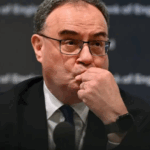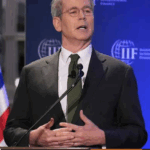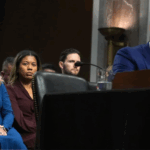Volkswagen has issued a warning about the potential economic consequences of the US administration’s proposed tariffs on Mexican vehicle imports. The automaker cautioned that such measures could negatively impact American consumers and disrupt the global automotive industry.
The warning follows statements from President Donald Trump, who indicated plans to impose tariffs of up to 25% on vehicles from Mexico and Canada by February 1. The proposed move is part of an effort to address concerns over migration.
Volkswagen, which operates a major manufacturing plant in Puebla, Mexico, expressed its opposition to the potential tariffs. The Puebla facility, Volkswagen’s largest outside Europe, produced nearly 350,000 vehicles in 2023, most of which were exported to the United States.
“The Volkswagen Group is concerned about the harmful economic impact that proposed tariffs by the US administration will have on American consumers and the international automotive industry. We remain a strong advocate for free and fair trade,” the company said in a statement.
Tariff Impacts on the Auto Sector
Volkswagen has invested over $10 billion in the US market and highlighted that open markets have historically driven global economic growth. Analysts from Stifel estimate that 65% of Volkswagen’s US sales are sourced from vehicles made in Mexico. Should the proposed tariffs take effect, Volkswagen may face significant challenges, with the brand’s competitiveness in the US market potentially at risk.
Volkswagen shares fell by 0.5%, dropping €0.50 to €96.35, amid the uncertainty. Shares of rival Stellantis also declined by 1.3%, closing at €12.68. Stellantis, which imports about 40% of its US-sold vehicles from Mexico and Canada, has supported initiatives to strengthen US-based manufacturing. John Elkann, Stellantis chairman, recently met with Trump and senior administration officials to discuss trade and manufacturing policies.
Broader Trade Implications
The proposed tariffs could jeopardize the US-Mexico-Canada Agreement (USMCA), which succeeded the North American Free Trade Agreement (NAFTA). Both Canada and Mexico have vowed to retaliate with counter-tariffs if Trump proceeds, raising the risk of a new trade war.
Financial markets reflected these concerns, with the Canadian dollar and Mexican peso weakening against the US dollar. By mid-morning, the Canadian dollar had dropped 0.9%, while the Mexican peso fell 1.2%.
As the automotive industry braces for potential disruptions, the proposed tariffs could have far-reaching implications for trade relations and market stability across North America.









